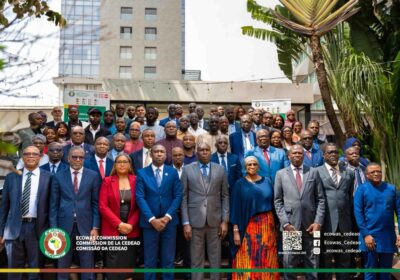Global Health Leaders Converge on Abidjan to Tackle Lassa Fever at ECOWAS ELFIC 2025.
By Raymond Enoch.
The World and West African leading health experts, scientists, and government officials are gathering in Abidjan from 8 to 11 September 2025 for the 2nd ECOWAS Lassa Fever International Conference, a critical meeting aimed at accelerating the fight against one of West Africa’s most pressing public health threats.
The event, organized by the West African Health Organisation (WAHO), brings together researchers, policymakers, public health advocates, and practitioners to share new scientific breakthroughs, control strategies, and collaborative frameworks to address Lassa fever—a viral haemorrhagic illness that continues to affect thousands across the region each year.
Held under the theme “Beyond Borders: Strengthening Regional Cooperation to Combat Lassa and Emerging Infectious Diseases,” the four-day conference is expected to shape the future of Lassa fever response and preparedness in West Africa and beyond.
The opening ceremony will be led by the Prime Minister of Côte d’Ivoire, Robert Beugré Mambé, and will feature high-level keynote speeches, panel discussions, and technical workshops. Among the major focus areas are advances in vaccine and diagnostic development, surveillance and outbreak response, cross-border health collaboration, and community-level preparedness.
A high-level ministerial roundtable will also be convened, co-led by Dr. Melchior Athanase AÏSSI, Director General of WAHO; Professor Muhammad Ali Pate, Nigeria’s Minister of Health and Social Welfare; and M. Pierre N’Gou Dimba, Côte d’Ivoire’s Minister for Health, Public Hygiene and Universal Health Coverage.
“This conference is a call to action to confront the persistent challenges associated with Lassa fever by advancing research, diagnostics, and community-led solutions, while enhancing preparedness and response strategies against zoonotic diseases,” said Dr. AÏSSI.
Lassa fever, transmitted to humans primarily through contact with food or household items contaminated with rodent urine or feces, causes severe illness in roughly 20 percent of infected individuals. The virus can affect multiple organs, including the liver, spleen, and kidneys, and is often fatal in severe cases. Despite its burden, there is currently no approved vaccine or antiviral treatment, making prevention and early detection essential.
Beyond its health impact, Lassa fever carries significant socio-economic consequences, particularly in rural and underserved communities. ELFIC 2025 aims to bridge the gap between scientific research and on-the-ground interventions by strengthening ties among governments, research institutions, NGOs, and international agencies.
Exhibitions highlighting innovations from across the region will run alongside the main conference, while networking sessions are set to foster new alliances for regional and international cooperation.
Participants and delegates are expected from all 15 ECOWAS Member States, alongside strategic global partners including the World Health Organization (WHO), World Bank, African Development Bank (AfDB), Coalition for Epidemic Preparedness Innovations (CEPI), and KfW.
As West Africa continues to face recurring outbreaks of Lassa fever and other emerging diseases, this conference is seen as a pivotal moment in turning science into policy—and policy into action.







